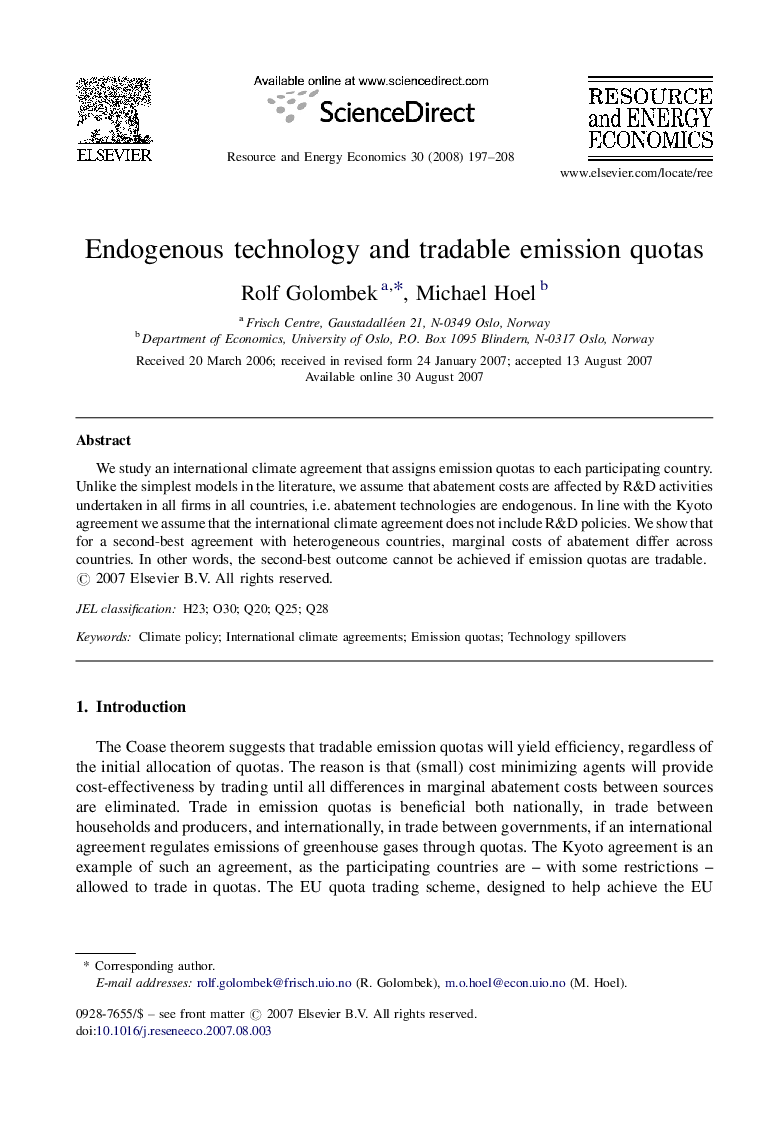| Article ID | Journal | Published Year | Pages | File Type |
|---|---|---|---|---|
| 986053 | Resource and Energy Economics | 2008 | 12 Pages |
Abstract
We study an international climate agreement that assigns emission quotas to each participating country. Unlike the simplest models in the literature, we assume that abatement costs are affected by R&D activities undertaken in all firms in all countries, i.e. abatement technologies are endogenous. In line with the Kyoto agreement we assume that the international climate agreement does not include R&D policies. We show that for a second-best agreement with heterogeneous countries, marginal costs of abatement differ across countries. In other words, the second-best outcome cannot be achieved if emission quotas are tradable.
Keywords
Related Topics
Physical Sciences and Engineering
Energy
Energy (General)
Authors
Rolf Golombek, Michael Hoel,
